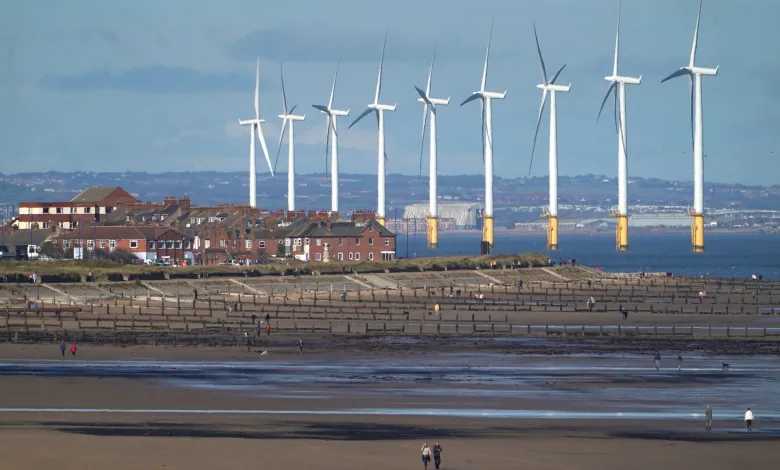The shift to a greener economy was worth £71bn and brought jobs and investment to parts of the UK affected by industrial decline.
These are the key findings of a new report by the Confederation of British Industry (CBI). Calculations show that the quest to achieve net zero emissions affects more than 20,000 companies. Some 840,000 jobs are related to areas ranging from renewable energy to waste management, she adds.
The report, titled ‘Mapping The Net Zero Economy’, looked at the regions of the UK that have benefited the most from policies to curb greenhouse gas emissions. Scotland and UK regions such as Tyneside, Teeside, Merseyside, and Humber have all outperformed, with green economies stronger than those in London and the South East, contributing significantly to growth.

According to the survey, green jobs also pay much better, with an average compensation of £42,600, which is much more than the national average of £33,400.
The study’s author and director, Peter Chalkley of the Energy and Climate Intelligence Unit (ECIU), asserts that “the net-zero economy is tackling levelling up and the UK’s productivity crisis.”
“But we will lose out and lose jobs if the UK doesn’t build on the wonderful work that has already been done,” The UK has long been recognized as a leader in green technology, particularly offshore wind, but its position is under threat.
“Other places [in the world] take a stand on how to get that investment,” said Tom Thackeray of the CBI, who conducted the analysis. It adds that there is “global competition”.
Analysts say the passage of a landmark law in the United States last year called the Inflation Reduction Act (IRA) has changed the global dynamics of green investing. The law allocates $369 billion (£297 billion) for action to tackle climate change, and many companies now see the US as the best place to invest.
“With the excitement [for the US since the IRA] continuing, our challenge is to reignite it in the UK,” said the chief executive of the Climate Change Commission, the public body representing the UK government. Chris Stark said. green policy.
The view that the UK is losing momentum was also found in last month’s Mission Zero report by Tory MP Chris Skidmore, who said the UK was lagging in the net-zero race.
One of the many problems Skidmore cited as hindering private sector investment, he said, was restrictive planning regulations and lack of policy coherence for onshore wind and solar energy.
“We need to speed up the planning and approval of renewable energy, grid connections, and vehicle charging,” said Emma Pinchbeck, chief executive of industry group Energy UK.
“It would take her 12 years to build a wind farm in this country if only one.” In response to the report and criticism of the policy, a government spokesman said the UK was a world leader in tackling climate change.
By 2030, they stated, “We intend to support up to 480,000 employment.” We are encouraging a record-breaking £100 billion in private investment by 2030 and have gotten about £30 billion in government support since March 2021 to get there.


















